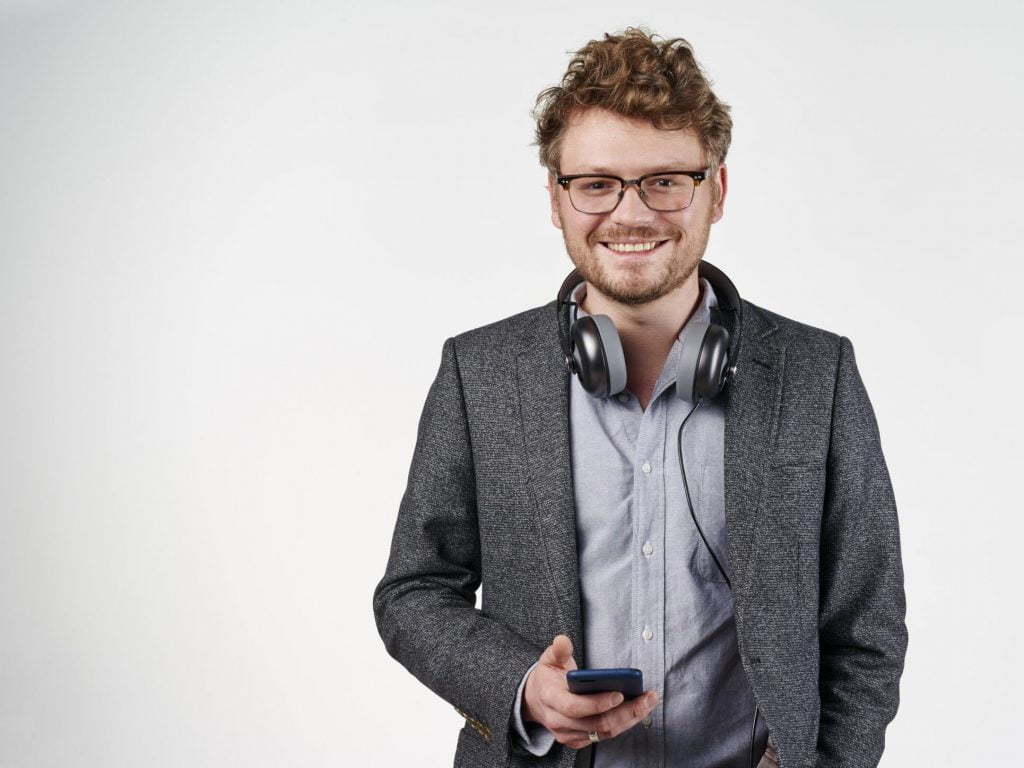Melbourne startup nura has officially become the most funded Australian Kickstarter campaign ever, reaching a current total of US$1.2 million in pledges for headphone innovation, which enables the headphones to learn and adjust to the wearables unique hearing.
Within two days of the nura campaign going live, its invention had received more than US$270,000 in pledges, smashing its initial target of US$100,000. The money will be spent on tooling for mass production, regulatory certifications, sourcing of materials and distribution.
Globally, less than 1 per cent of Kickstarter projects reach funding of more than US$1 million. The average Kickstarter project attracts approximately 3 per cent of backers from Australia, but in nura’s case, almost 20 per cent of its backers are Australian.

Nura co-founder and CEO, Kyle Slater attributes its runaway success to strategic planning as well as having direct and immediate engagement with music lovers who wants to ‘preserve the quality of music’.
Just like every human face and voice are unique, so too is the structure of everyone’s inner ear. These variations in anatomy result in us hearing sounds differently. By using unique soundwave technology, nura’s headphones adapt music perfectly to the user based on his or her sensitivities to different frequencies of sound.
In addition, Mr Slater believes that the proliferation of smartphones and availability of streaming music had bred an economy where people are concerned with how they are listening to the content. “Because it’s in their lives every day, they are thinking, ‘how do I make it better?’,” he said.
Nura also received funding from the Melbourne Accelerator Program, and is a graduate of the HAX Accelerator. Founded in April 2015, the nura team includes Luke Campbell (Co-founder, CTO), Dragan Petrovic (Co-founder, COO) and Wilson Chao (Engineer).
“For us, crowdfunding wasn’t just a means to get money; it was a platform to engage with the very first people who would use our product, and we wanted to engage with the evangelists themselves,” Mr Slater said.
Post-election, there are renewed discussions (and frustrations) to move forward with equity crowdfunding legislation later this year. The policy rationale for equity crowdfunding is to promote and facilitate innovation particularly by small firms and new startups by enabling anew funding channel.
New regulations to aid in equity crowdfunding would minimise the loss of innovative home-grown projects to countries such as the US, New Zealand and Italy, where equity crowdfunding is permitted, or other funding is more readily available.
But for the nura founders, equity crowdfunding was never considered in a serious way.
“Equity crowdfunding is an interesting concept, but it’s not fundamentally something that we were interested in,” Mr Slater said.
“When you have vested interests in the performance of a company, there tend to be skewed opinions about how that company operates and all those opinions need to be factored in, which may not result in a better outcome,” he said.
“Companies need to pick one direction and maintain close relationships among co-founders for it to move forward. It’s [equity crowdfunding] is like having a mini-IPO at a time where you don’t need that public opinion.”
He says that being able engage with people as potential customers, on top of raising product awareness, was the main advantage of Kickstarter. Equity crowdfunding does not provide that option.
“If you are serious about building a product, crowdfunding gives you non-diluted funding that offers direct access to those who believe in your product.”
For startups, good cash flow go a long way to help grow the business and assist in product development and commercialisation, but offering people equity in the business that they are helping to fund may attract investors who do not understand the product or business, or worse, risk damaging the reputation of the product.
For now, the jury is still out on this one.
Do you know more? Contact James Riley via Email.

